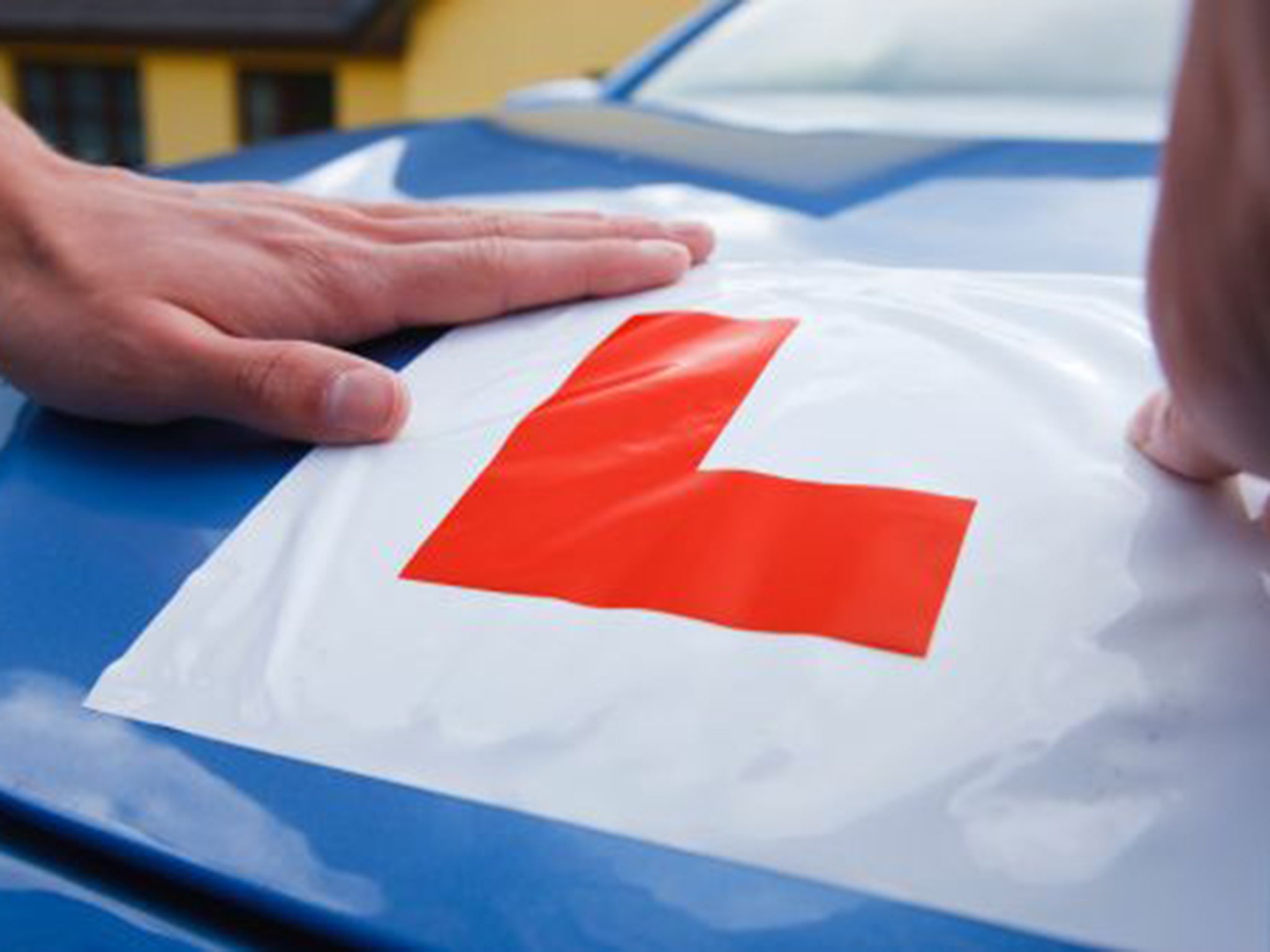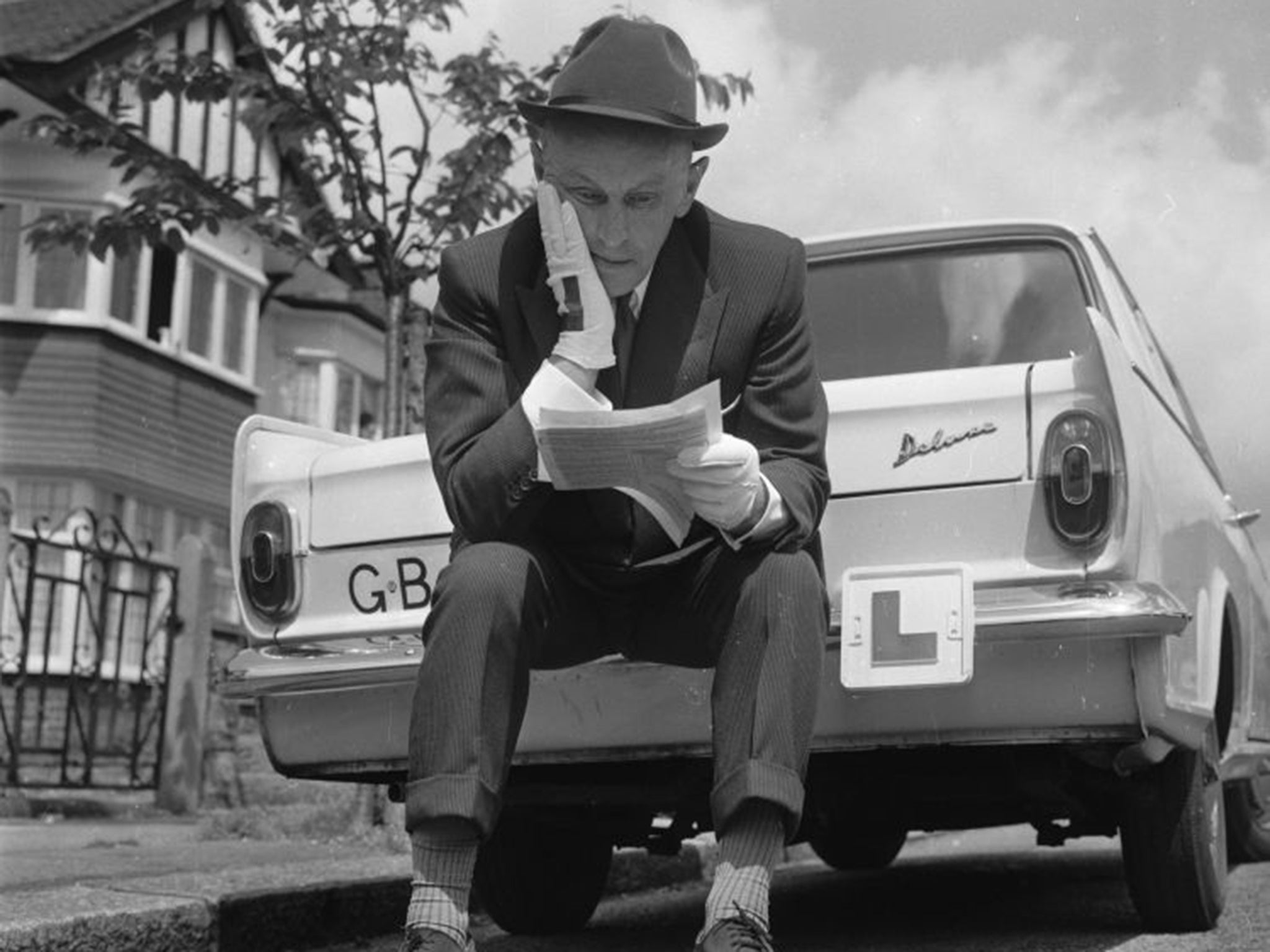After 250 lessons, Britain's worst driver pledges to keep trying to pass her test
Janine Mars is not giving up - and it seems she's in good company

If at first you don’t succeed, try and try again. That’s the theory. But when it comes to driving, some people should just give up. That’s the view taken by Lena Dunham, the American actress and screenwriter, and one that is echoed by road safety campaigners, psychologists and friends of the intelligent yet spatially unaware. “I don’t drive,” Dunham told an interviewer. “It’s not going to happen. Some people are not meant to be mothers, and some people are not meant to drive.”
The question of whether some people are congenitally unsuited to controlling a clutch has been raised by news of a Kent woman who hasn’t passed her test after 250 lessons, earning her the title of Britain’s Worst Driver. Janine Mars, 31, a construction worker from Chatham, has spent more than £5,000 on lessons over 14 years, and failed four tests. “I think I will learn one day,” she said. “I just find there’s so much to think about, what with the steering wheel, pedals, gear lever and everything that’s happening on the road. It doesn’t come naturally.”

In terms of failed tests, Ms Mars is by no means the worst offender. That honour goes to an unnamed 42-year-old man from Stoke-on-Trent who failed 36 driving tests before passing on his 37th go. There is currently no limit on the number of times you can take your test. Figures from the Driver & Vehicle Standards Agency show that some people have extraordinary determination. One 28-year-old woman from Southwark has failed the theory test 110 times, while a 30-year-old man from Peterborough hasn’t passed after 86 attempts.
The two people who have racked up the most failed driving tests are both men, and analysis of the DVSA figures offers ammunition for those who believe gender is relevant. Of the top 20 people who repeatedly failed their theory test, 15 are men, and five are women. But when it comes to failing the practical, women fare worse, accounting for 14 out of the top 20 repeat offenders. In practice, gender and age are less likely to be factors than nervousness and spatial awareness.
Albert Einstein never learned how to drive, saying it was far too complicated, and anecdotal evidence suggests a number of highly intelligent people are similarly car-shy. Robin Lane Fox, father of the internet entrepreneur Martha, and an academic at New College, Oxford, is notorious for his inability to pass a driving test. On one occasion, he arrived at a roundabout and turned right instead of left. Christian St John Percy, a Cambridge-educated civil servant, failed four times, the third because he drove the wrong way up a dual carriageway. A senior mathematician at Edinburgh University failed so many times that it became an obsession to pass, but he has not managed it. Mary Killen, the Spectator columnist, knew the game was up when she arrived at a T-junction and, forgetting what to do, took both hands off the wheel to cover her eyes.
David Crundall, a professor of psychology at Nottingham Trent University, says that people who fail repeatedly should look for possible reasons. “Two or three fails and you can attribute it to factors such as the sun in your eyes, wet roads, or nervousness,” he says. “But with people who come back for their fifth or sixth test, you will find there’s definitely something amiss.”
In countries such as Austria, psychological tests are a part of the driving examination process. But not here, which Professor Crundall feels is a mistake. “In this country, what we have is medical evaluations, and visual examinations for fitness to drive. But there isn’t anywhere you can go to assess the psychological aspects.
“Over the years the government has conducted a reasonable amount of research into the psychology of driving. For a lot of people, that comes down to attitudes, and attitudes really aren’t tested in the driving test. I think there is scope to incorporate traffic psychology more into the testing procedure.”
Brian Mooney of the Alliance of British Drivers says people should be encouraged to drive more, not less, if they are struggling. “It’s like French,” he says. “The more you speak it, the better you are.” He also calls for legislation to force those who fail repeatedly to seek professional help. “At the moment, there is no legal requirement to have qualified instruction,” he says. “Anyone can teach you how to drive. Unless there is a good reason not to, people who fail more than three times should be asked to take qualified instruction.”

Ms Mars plans to take his advice. She has booked a week off work to take an intensive course to learn once and for all. “I think that’s the only way,” she says. “I’ve been having one lesson a week for years and it’s no good. I need to spend a week just driving.”
But even intense training is no guarantee. Lorne St Clair, a 24-year-old journalist from Norfolk, failed five tests in five weeks in 2011. “I almost bankrupted my parents and sent myself into post-traumatic-stress therapy,” he says. “Now all the papers have expired and I haven’t been behind the wheel since.”
Can't drive, won't drive
Melvyn Bragg
David Attenborough
Robbie Williams
Ricky Gervais
Lena Dunham
In numbers
110 Highest number of times the theory test has been failed
36 Highest number of times the practical test has been failed
46% Pass rate of the driving test in the UK in the last three months
1.5m Number of tests taken every year
830,000 Number of tests failed every year
Join our commenting forum
Join thought-provoking conversations, follow other Independent readers and see their replies
Comments
Bookmark popover
Removed from bookmarks